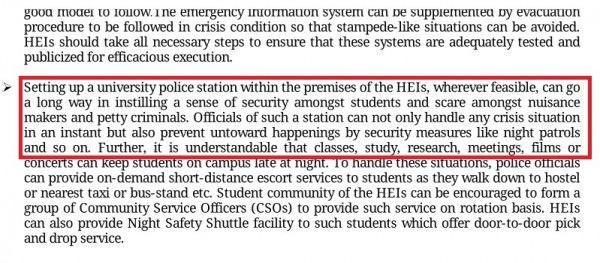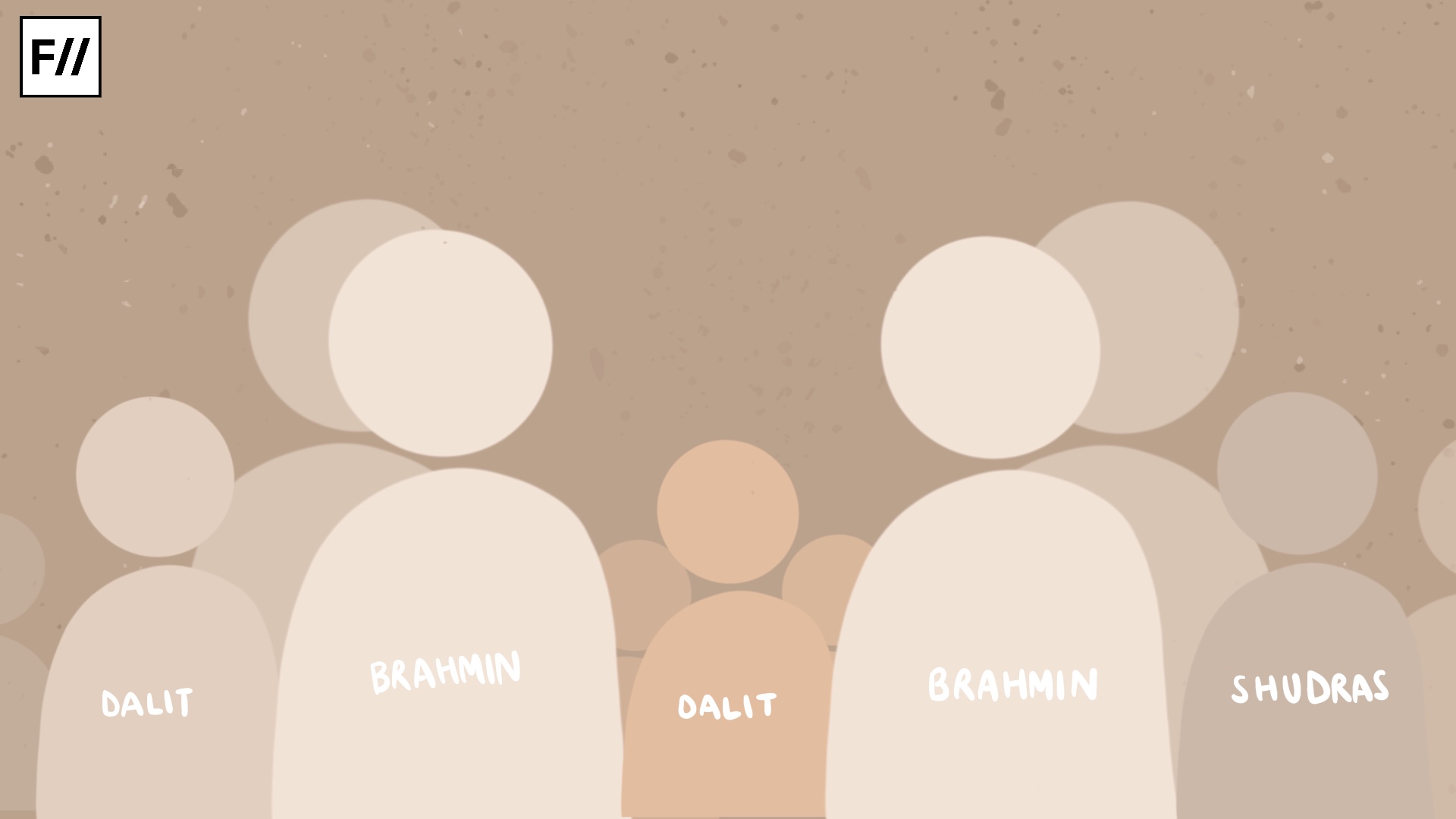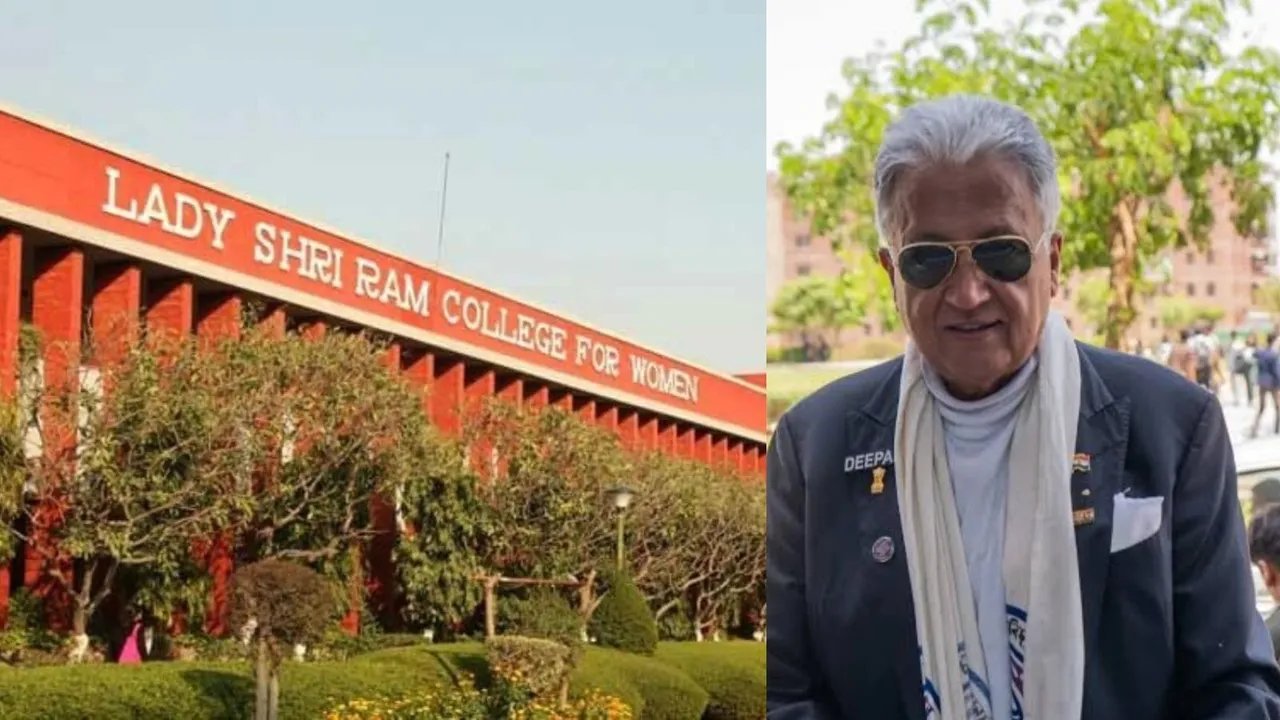While reading the prospectus of my college, Government College for Girls, Patiala, I came across a point under hostel rules which said, “Those who participate in any strike directly or indirectly, can be expelled from the hostel“, which reminded me of physical and mental genocide of people by the fascist regime of Hitler. The educational campuses, especially, exclusively girls’ educational campuses, have this as a rule for day scholars as well as hostlers. Although it is a recognised and acknowledged fact that our educational institutions have gender-discriminatory practices, ranging from the timings of hostels to that of research, still this particular rule is the most dangerous and derogatory one.
Schools, colleges and universities for women, which were set up to promote women empowerment in the age when women were refrained from studying, following the revolutionary beginning of Savitri Bai Phule’s school, today, have the most suppressive and male-chauvinist rules and regulations, under the name of the same ‘exclusivity’. This uniqueness of the institution, that is, teaching only women, tend to become unique in following the constitution of the nation also; it is posed as detached island, meant for making women ‘wise’, ‘excellent’ in all fields. However, this wisdom and excellence is consciously interpreted in the manner suitable to the authority and governments. If you are a student in a girls’ institution, you have to keep up the ‘reputation’ of the institution, by not making boyfriends, not going out too often, no night-outs, and of course no ‘unionbaazi‘, a name used by the authority as an insult towards student politics. All ‘isms’, mechanisms and biological diagrams which are ‘taught’ in closed classrooms, seem bogus in front of the atmosphere provided.
Recently, UGC has recommended certain guidelines for higher educational institutions, under the name of UGC Guidelines On Safety Of Students Off And On Campuses Of Higher Educational Institutions (HEI), whose sixth point reads, “Setting up a university police station within the premises of HEIs, wherever feasible, can go a long way in instilling a sense of security among students and scare amongst nuisance makers and petty criminals.” What is interesting is the group of students who will be and are named as “nuisance-makers” by the authority.

Subramaniam Swamy, member of BJP commented on the students of JNU, the campus known for its left-centered politics, “The students and teachers of JNU are ‘naxalites’“, which is the exact manifestation of the point highlighted by UGC, purpose being the de-politicization of campuses. In an atmosphere where the participation of women in public spaces, meetings, organizations is next to minimum, such guidelines will push women inside the four walls of hostels and homes, away from academic as well as political activities. The implications of these guidelines when implemented in colleges like the one stated will increase the intensity of gender discriminatory rules, such as women’s reluctance to participate in protests in front of police officials. The voices of dissent will also be crushed and an atmosphere of emergency will be created, where women will be sidelined to the category of weak and silent students.
The processes through which women are socialized to accept themselves as weak and dependent are varied across the atmosphere of the locality they live in, to the school, to the college, to the workplaces, with the foundational work done by the school education. Since the development of a professional education, it remains as one of the most influencing factor in deciding the consciousness and thought process of the individual. Education is a process of theorizing knowledge which human society has acquired, and that of setting up new challenges for the next generation. But, the academic syllabus which was supposed to enlighten students through it, is actually preaching the idealistic and metaphysical notions about society, including subjugating women as a second sex; it starts from the nursery rhymes and continues till the death of a woman, in one or the other from.
Let us take an example to support the case. In the syllabus of CBSE, there is a poem in English, named, “A Man and A Maid”, in which a man asks a maid to marry her but she refuses because he does not have the sufficient resources and money to start a family in her comment, “Should I be your little bride, Pray what must we have for to eat, eat, eat? With the flame you’re so rich in, Light a fire in the kitchen?“. The poem speaks in a highly sexist tone where the maid is represented as the one dependent on the man for their survival, and this is what four year children are taught in the school, which is a complete ignorance of the domestic work and the role women have played in the evolution of society.

The next case is of a lesson, which students are taught in B.A-Ist Semester, Punjab University Patiala and its affiliated colleges, name being, The Nose Jewel (T.Rajagopalchari). The introduction of the chapter speaks in a threatening and threatened tone, simultaneously, commenting that the chapter is likely to be disliked by ‘present-day feminists’. The fable deals with a pair of sparrows who take shelter in a home where a couple lives. One fine day, the male sparrow finds a diamond nose-jewel lying on the floor and brings it to his wife, but she says that it is of no use to her, to which the male sparrow discards it to the floor. The lady of the house sees it and wears it. Her husband comes home and asks from where has she got it, and asks her to report it to the police. She refuses and in a few days she falls ill. On seeing this, the male sparrow remarks that she fell ill because she did not obey her husband, and the female sparrow smiles and agrees. This misogynist lesson instils in the mind of women the belief that they are the ones to be protected and saved from the ‘monsters’, who can be safe and happy only if they listen and obey their male counterparts.
In such times as these, when voices of women are silenced and the space where such voices were heard are snatched from them, such as democratic educational campuses, it is very important that women start resisting such attempts and put forward a fight for acquiring all the spaces of society, in texts prescribed by the authorities as well as in campuses. A campaign named ‘Pinjra Tod: Break the cages‘ has been started in Delhi and other parts of India, targeting the locks of hostels which restrict the movement of women. Last month, a school going girl of 8 years was gang raped in a town near Amritsar, Punjab, who said that she did not want to go to school now because everyone looked down on her, and her mother is worried about her marriage!
We must give fight to such patriarchal mindsets and their bases which seize the childhood, the teenage, the youth from women; challenge the sexist academic and material atmosphere; altogether giving a call for women’s freedom and equality in educational campuses and society, at large. The communal attempts that are being hurled up at education such as teaching Gita in classes, changing the third language to Sanskrit, recruiting Gajendra Chauhan as the head of FTII, naming Kanya Maha Vidyalays as Heritage Site, descientifying science etc must be met with consistence resistance with women taking the head on position, so that the position of women can be retraced throughout the history as one playing an essentially important role in society.
Featured Image Credit: Pinjra Tod: Break The Hostel Locks



